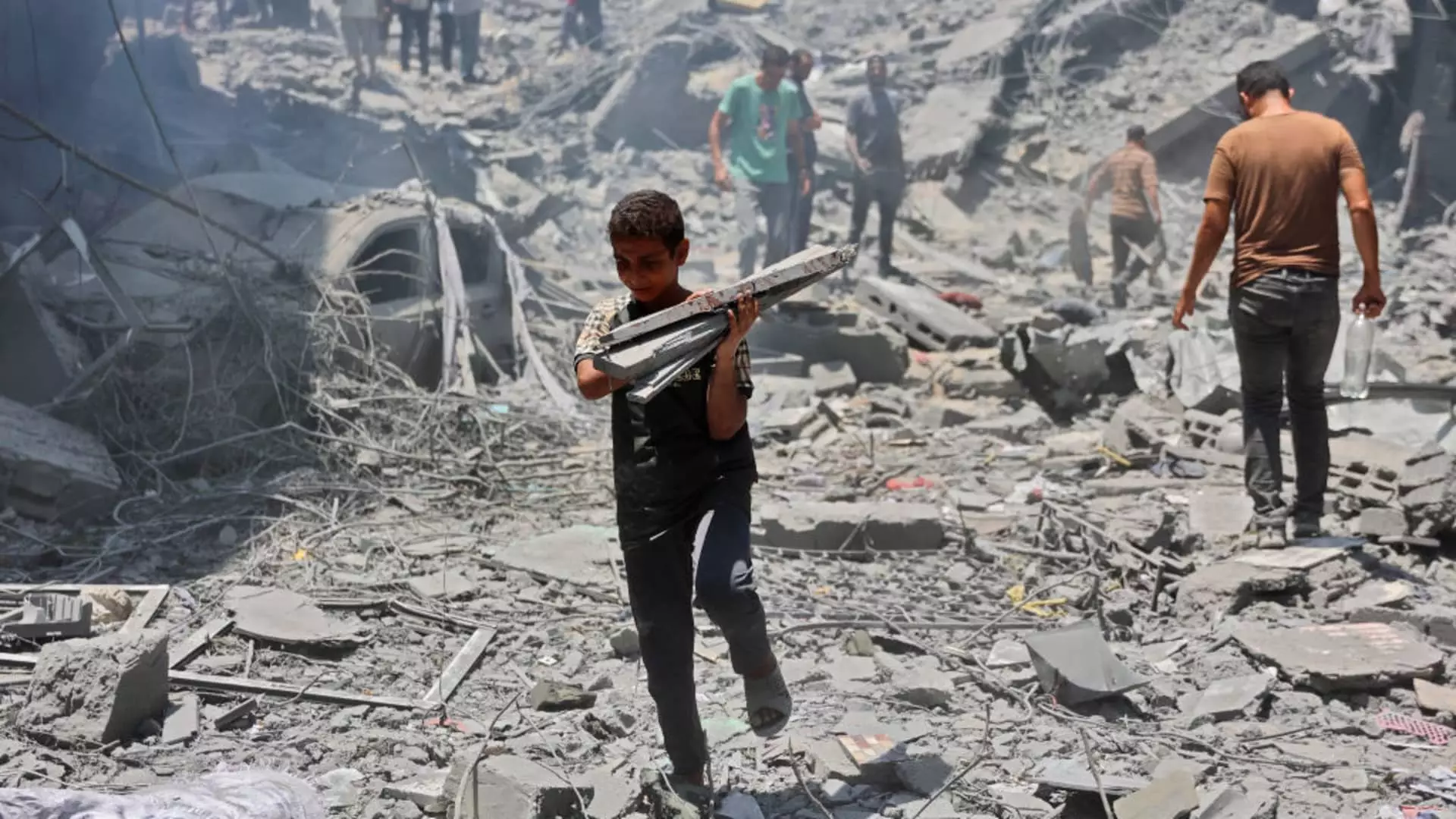Israeli Prime Minister Benjamin Netanyahu recently addressed the ongoing conflict in the war-torn Gaza enclosure, indicating that the intense phase of fighting is nearing its end. He emphasized that the broader war against Hamas continues, highlighting the need to shift troops near the northern border with Lebanon due to increased hostilities against the Iran-backed Hezbollah. Netanyahu’s comments during a live interview with an Israeli news outlet shed light on the complexities and challenges faced by Israel in the region.
Thousands of Israeli and Lebanese civilians have been displaced from their homes along the border due to the exchange of fire since the start of the war campaign against Hamas. The solidarity expressed by Hezbollah with the Palestinian cause has further escalated tensions, leading to increased bombardment in the region. The displacement of innocent civilians underscores the humanitarian crisis unfolding in the area, with families forced to flee their homes in search of safety.
Netanyahu’s vision for the aftermath of the Gaza conflict raises questions about the future governance of the region. By emphasizing the need to eliminate Hamas capabilities and establish Israeli military control in the enclave, he rejects the possibility of an independent Palestinian state. This stance is in contrast to the support extended by several Western countries for a two-state solution, reflecting the complex political dynamics at play in the region.
Amid rising tensions between Israel and Lebanon, efforts to de-escalate the situation have been made through international diplomacy. U.S. special envoy Amos Hochstein’s visit to the region and German Foreign Minister Annalena Baerbock’s planned trip to Lebanon demonstrate the global concern over the unfolding crisis. The U.S.’s unwavering support for Israel has faced scrutiny, with questions raised about the proportionality of the conflict and the humanitarian toll on the Palestinian population.
Netanyahu’s remarks about a reduction in weapons shipments from the U.S. underscore the strained relationship between the two allies. The lack of mutual endorsement for a peace framework for Gaza further complicates efforts to find a lasting resolution to the conflict. The deepening cracks in U.S.-Israeli relations point to the challenges faced in maintaining international alliances and addressing regional security concerns.
The ongoing conflict in the Middle East presents a complex and multifaceted challenge for all parties involved. The humanitarian crisis, military escalation, and political dynamics underscore the need for urgent and concerted efforts to de-escalate tensions and work towards a sustainable peace agreement. International diplomacy, support, and dialogue are crucial in finding a way forward and preventing further suffering and loss of life in the region.

Leave a Reply